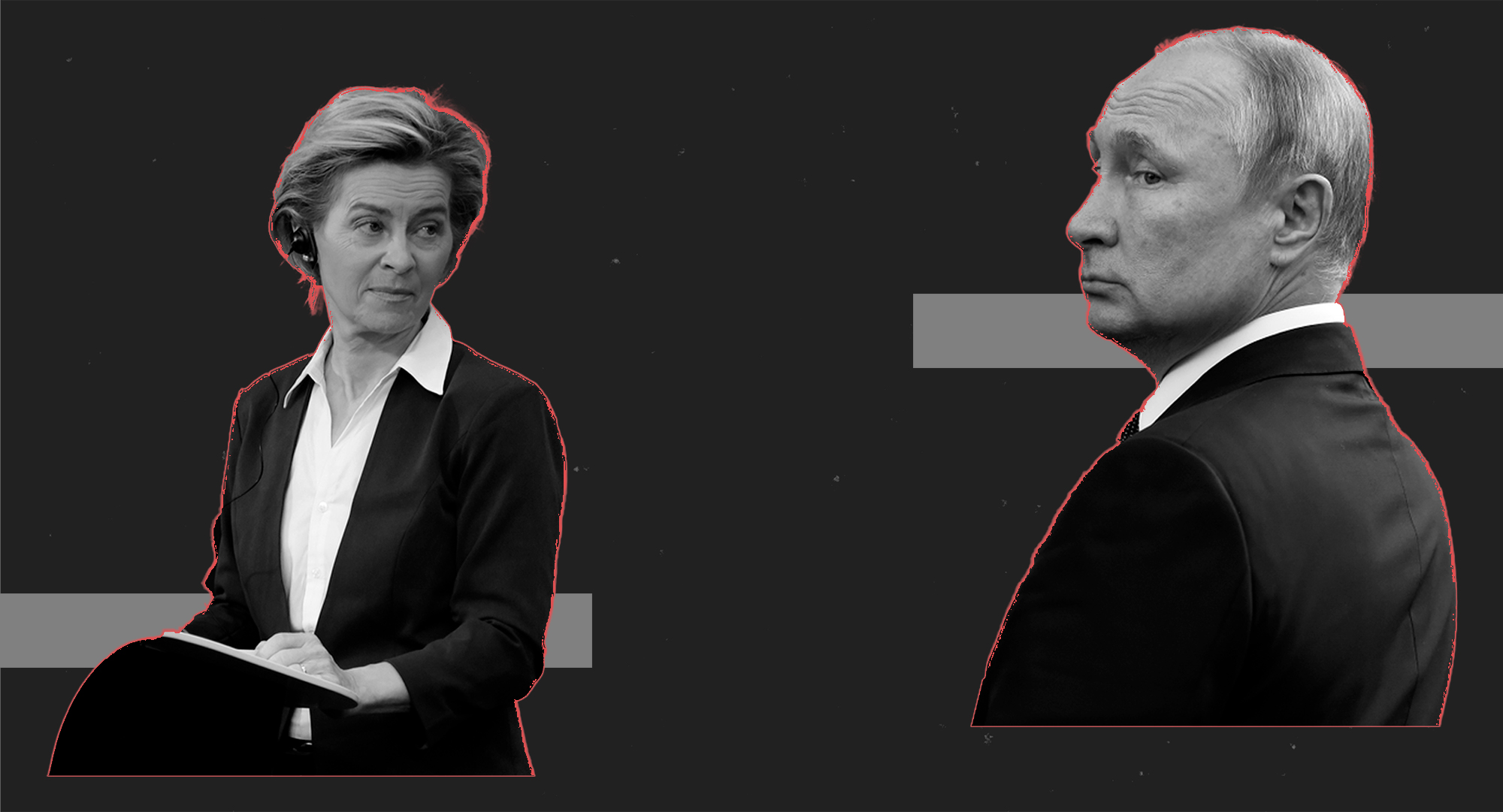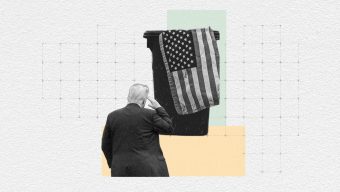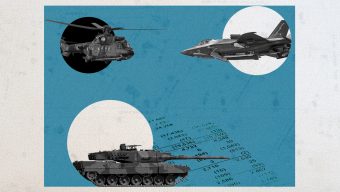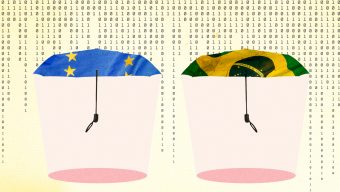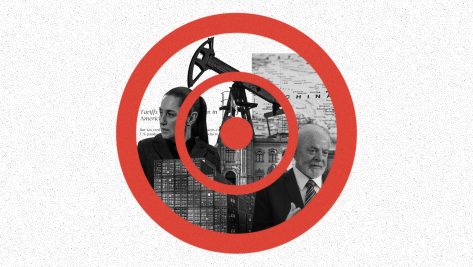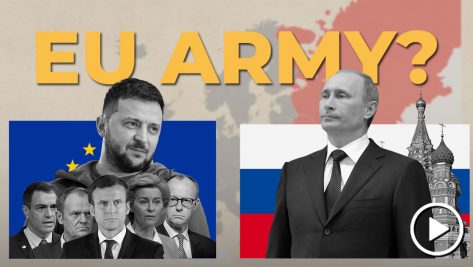As an international actor, the EU, for decades, has been frequently accused of appeasement and of coddling up to dictators. Its supposed main interest was to preserve its manifold economic interests, its image as a soft power relying on argument and persuasion, and on the belief that engagement is always better than conflict. Its inability to agree on hard-hitting and effective policy measures has been mocked relentlessly, resulting, for example, in a successful Twitter handle lampooning the EU’s infinite ways of expressing concern and condemning without actually jumping into action.
Not anymore. Putin’s attack on Ukraine has galvanized the EU and its member states into action.
Numerous member states have started to send weapons, with the EU’s foreign policy chief Josep Borrell announcing that this would include fighter jets. Germany has abandoned its previous sacrosanct policies of engaging Russia through diplomacy and economic deals. The EU’s satellite center in Madrid is providing intelligence to Ukraine about Russian troop movements. Even tiny Luxembourg is delivering anti-tank guns, among other equipment. In addition, EU member states have agreed to crippling sanctions on the Russian economy. Even Switzerland has joined in on the sanctions. Triumphant voices claim that, finally, the EU has proven to be more than a toothless tiger.
We are, however, entering a dangerous dynamic. From sending helmets and anti-aircraft missiles, and switching SWIFT off for Russian banks, we have moved to sending fighter jets and freezing the assets of Russia’s Central Bank, which Friedrich Merz, the CDU leader has dubbed the “financial nuclear option”. At the beginning of the conflict, Germany and other member states wanted to avoid sending weapons to Ukraine to avoid a conflict with Russia, a nuclear power. But in a few days, encouraged by the brave resistance of the Ukrainians, we have evolved from helping Ukraine defend itself to economic sanctions and military intervention – of a reach and scale totally unprecedented and cheered on by a wave of collective euphoria that Putin is losing this war – which can easily be interpreted in Moscow as an “attack” on its national interests. What started as a war of Russia against Ukraine is turning into a war between the West, specifically the EU, and Russia.
Already demands are multiplying that NATO should impose a no-fly zone. Speculation abounds whether special operations teams of NATO countries such as France should be deployed to protect President Zelensky of Ukraine. And as the Russian advance in Ukraine is being slowed down by the courageous resistance of Ukraine, commentators foresee the end of Putin and start to call for regime change, and, of course, Ukraine’s NATO membership and a fast-tracked EU membership.
The EU needs to find a fine balance between avoiding appeasement and stirring brinkmanship.
While there is no doubt that Putin’s war needs to be countered there is one ominous variable that many tend to forget: the fact that Putin has until now made good on his threats, as outlandish as they seem. He said repeatedly that without Russia the world is not imaginable. On Sunday Putin placed his nuclear forces on high alert. In his press conference after a whole day of talks with French President Macron on Feb. 7, Putin, wagging his finger at the audience of journalists, warned of a nuclear war if Ukraine joins NATO or attempts were made to restore Crimea to Ukraine: ‘You will be pulled into this conflict against your will. You won’t even have time to blink your eye when you execute Art. 5”.
Such threats not only concern the much-debated NATO accession of Ukraine. If we consider the Russian reaction to the projected EU association agreement in 2014, we can imagine how Putin will see expedited EU accession talks – a step which would definitely bring Ukraine into the Western fold (apart from the fact that EU member states and parliaments would have to be consulted). While EU leaders seem to have heeded the lessons of Munich 1938 when Britain and France made a deal with Hitler that sealed the fate of Czechoslovakia without averting the world war that started a year later, they seem to have forgotten the lessons of brinkmanship that apply to standoffs with nuclear powers.
The Cuban missile crisis is often celebrated as a successful model.
But more recent research has shown how risky Kennedy’s strategy was and how close the world was to nuclear war by accident. This was the case even though the US government kept a unified front negotiating silently with Soviet counterparts and not with a cacophony of voices as the one emerging from the EU today. A face-saving deal was arranged whereby the US would silently withdraw its missiles from Turkey in exchange for a Soviet U-turn, allowing Khruschev to claim some victory among his inner circle. While both sides continued to supply weapons to countless forces that were supposed to be part of the fight against the ideological enemy, they did so quietly, ensuring that things did not get out of hand. Mechanisms, such as the famous red button, were installed to avoid nuclear war by accident.
The situation is now different. A face-saving deal is difficult to imagine especially with the West getting involved more and more in the conflict. But such a deal is absolutely necessary to avoid sleepwalking into a nuclear conflict. Many in the West believe that military setbacks in Ukraine and economic hardship in Russia will weaken Putin to the point that he will be de-throned. However, many of the planned and proposed actions would not only make Putin a pariah but would do the same to Russians too. There is also a strong belief that even if Putin acts irrationally and wants to activate his nuclear weapons, his “more rational” aides will stop him first. The general group thinking is that he is a disliked dictator so the more Russia is weakened the more his people will turn against him. This is a dangerous bet to make, too dangerous.
The EU needs to find a fine balance between avoiding appeasement and stirring brinkmanship. As Adam Tooze has rightly pointed out, in calling for Iran-type sanctions against Russia, we seem to have forgotten that these are sanctions to stop Iran having a nuclear arsenal. But Russia already has this arsenal at its disposal. The EU needs to think very hard about whether it really wants to join the armed conflict and how it can convey a strong message without bumbling into a catastrophe that seemed unimaginable only a week ago.
© IE Insights.



